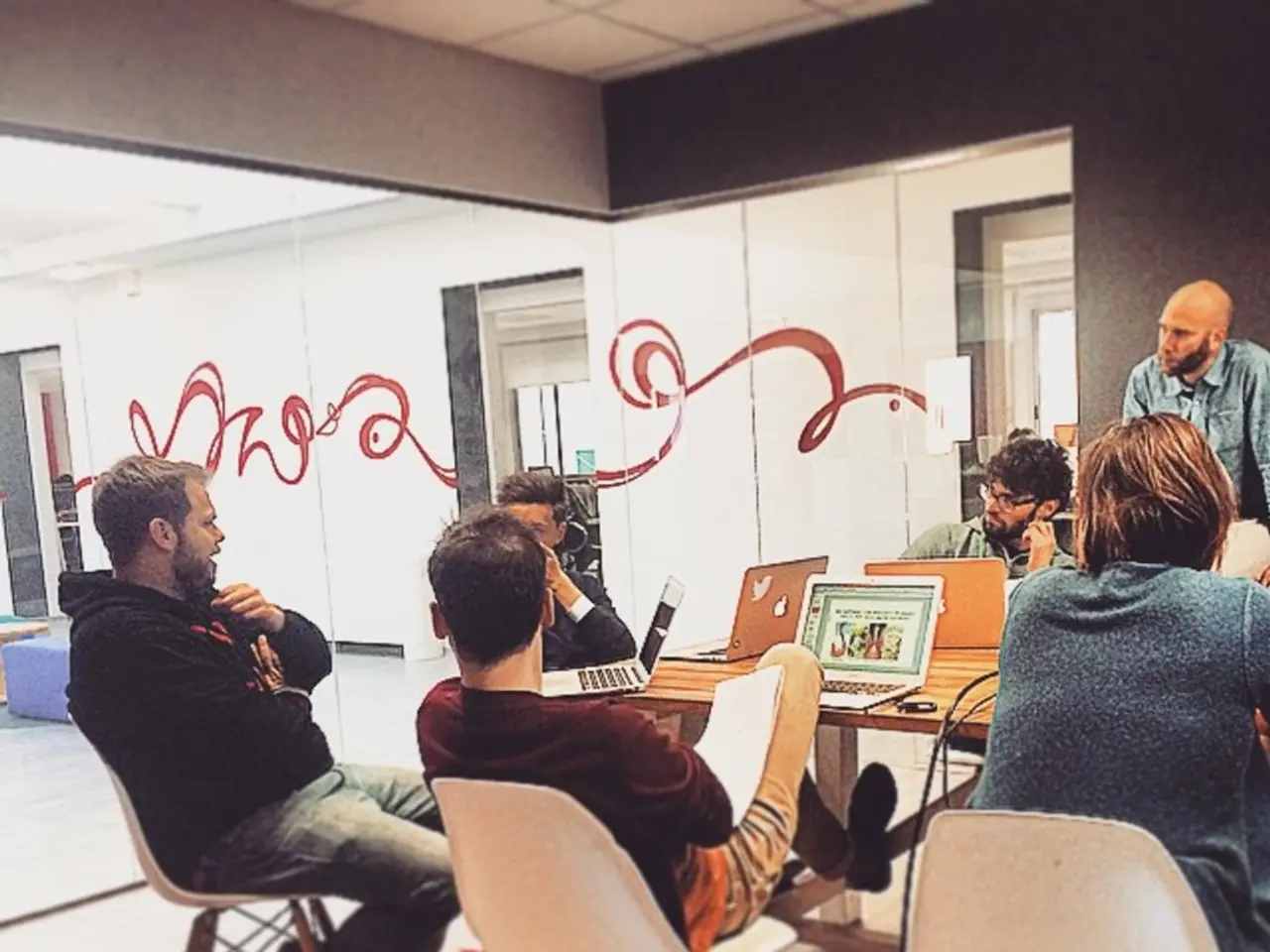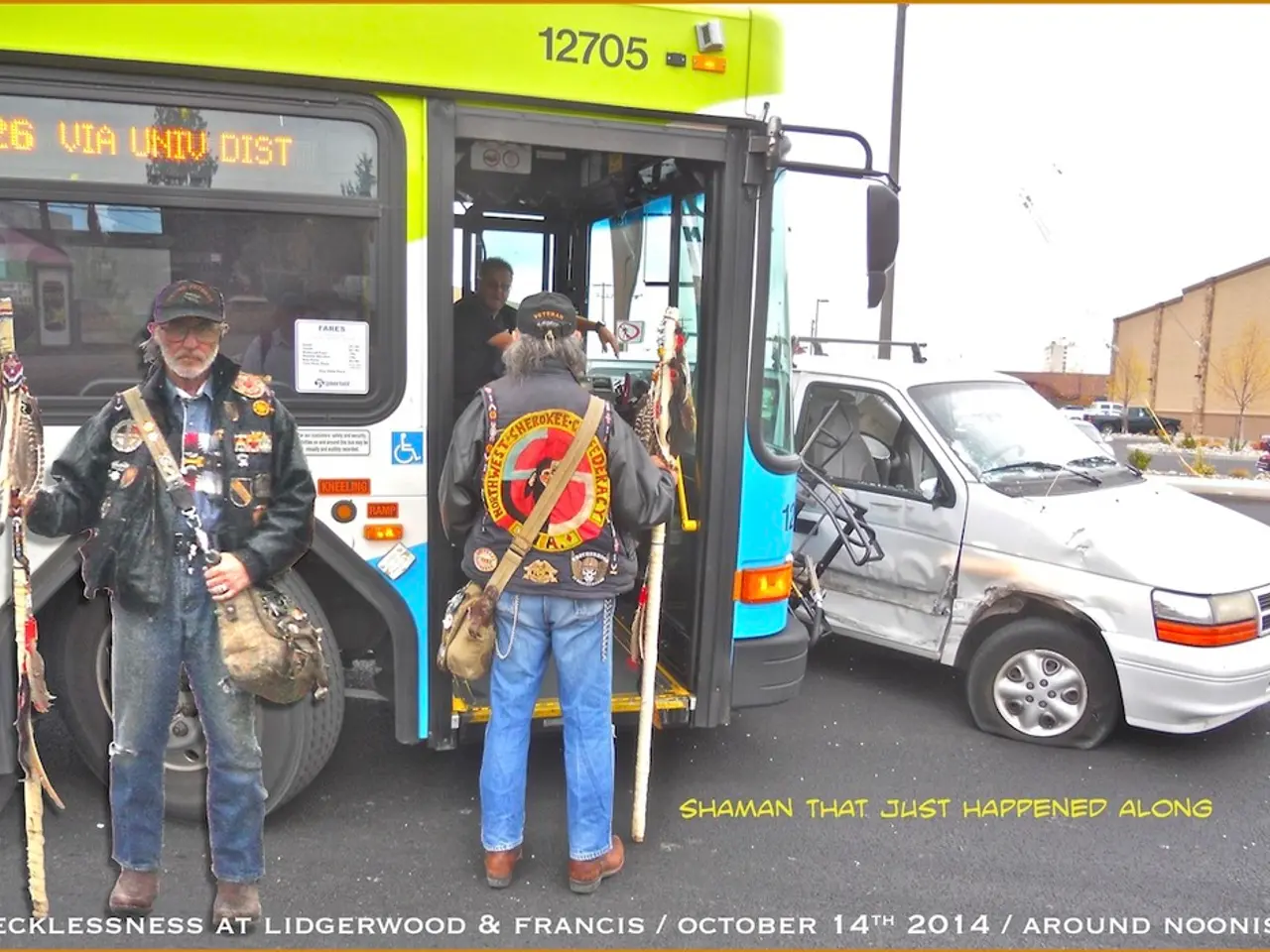AI Transforming Workplace of Future Days
================================================================
In today's fast-paced world, Artificial Intelligence (AI) is becoming an integral part of business operations, revolutionising various sectors and reshaping the way companies operate.
AI is streamlining and automating repetitive tasks, allowing employees to focus on complex and creative work. In marketing, AI tools deliver hyper-personalised content and optimise Return on Investment (ROI). In supply chain management, AI-powered systems like those used by Amazon optimise logistics and supply chain management.
The benefits of AI are not limited to large corporations. Small businesses can also leverage AI to collaborate effectively with technology, as predicted by the World Economic Forum. Investing in employee upskilling and reskilling programs is crucial for businesses to adapt to AI-augmented roles.
In the realm of human resources (HR), AI is automating administrative and talent management tasks. Hilton Hotels, for example, uses chatbots to screen applicants, reducing hours on hiring timelines. AI can also draft job descriptions, screen CVs, match resumes with job descriptions, and run initial interviews. This automation frees HR professionals to focus on strategic and engagement-oriented activities.
AI-powered workforce analytics enhance talent acquisition, identify turnover risks, and personalise employee development. The democratization of data within organisations allows employees at all levels to access actionable insights, making decision-making more agile and boosting competitiveness.
To prepare for this AI-driven future, organisations should:
- Invest in AI solutions and services to yield operational and strategic benefits.
- Promote upskilling and reskilling programs to help employees adapt to AI-augmented roles.
- Enhance data literacy across the workforce to maximise the value of AI-generated insights.
- Reengineer business processes incorporating AI for efficiency and innovation.
- Emphasise ethical AI use and governance to balance automation with human-centered values and maintain trust.
These steps align business, HR, and operational strategies to harness AI's full potential in driving productivity, innovation, employee experience enrichment, and customer engagement.
AI is also transforming other aspects of work. AI chatbots can improve communication, deliver ongoing feedback, and predict employee dissatisfaction. AI-based tools can simplify complex tasks, such as data entry, inventory management, and financial reporting. AI can even assist in navigating the laptop return process for employees, ensuring a smoother and more efficient offboarding experience.
Even in the manufacturing sector, AI is making a significant impact. Tesla, for instance, utilises AI and workplace automation for car manufacturing and production efficiency.
As AI continues to evolve, continuous learning in AI-related technologies will be crucial for staying ahead in a fast-changing tech workplace. Online resources like ChatGPT courses are available for learning AI tools and prompt engineering.
In conclusion, AI is profoundly transforming business operations, human resources, and other critical areas. Organisations can prepare for a future of work with AI by adopting AI-powered tools, upskilling employees, fostering data literacy, and reshaping business processes to leverage AI capabilities strategically.
- Artificial Intelligence (AI) is not only revolutionizing large corporations but also enabling small businesses to collaborate more effectively with technology.
- In finance, AI-driven systems can streamline complex financial reporting and automate data entry, ensuring a smoother and more efficient workflow.
- The integration of AI in the field of health and wellness is promising, as AI chatbots can offer ongoing feedback to employees, predicting potential health issues and improving workplace wellness.
- By upskilling employees in AI-related technologies, organizations can adapt to evolving AI-augmented roles, ensuring a smooth transition in the fast-changing tech workplace.
- In the art world, AI is pushing boundaries by creating original art using artificial intelligence algorithms, bridging the gap between technology and human creativity.




